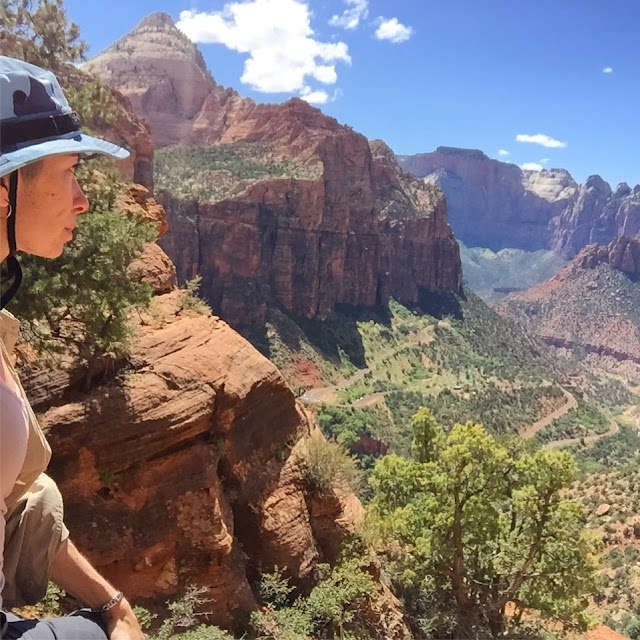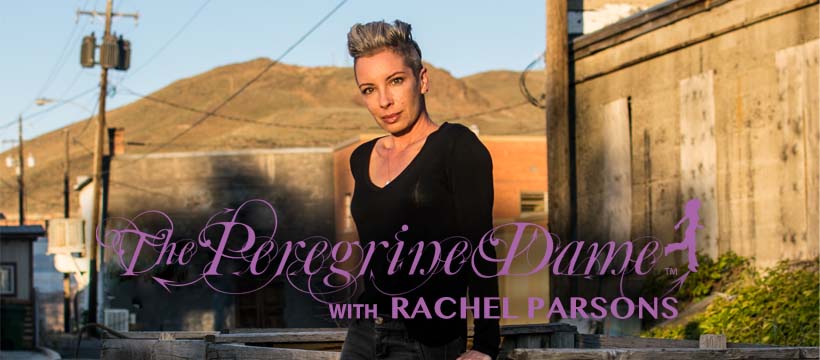Close to Home
 |
| A photo of me I did not take, wonder of wonders. Field reporting in Montezuma Creek on the Navajo Nation, SE Utah. Photo: Jordan Winters |
This was a unique year. I spent some time traveling inside the country, for a change.
Much of that time was spent traveling back and forth from my home in suburban Los Angeles to the University of Southern California where I’m a full-time undergrad working toward a journalism degree. The Peregrine Dame continues, albeit at a slower pace through editing during the school year.
But I also spent time in Utah and Texas as well, both states to which I have close ties.
In May I found myself in rural southeast Utah, where I participated in a short course through school, reporting as an intern for a tiny weekly newspaper. (There’s a lot I can say about the experience but the takeaway is this: support your local news outlets, gang.)
It was as foreign an environment to me as many of the countries I’ve been to on the other side of the world. Though, at the same time, certain elements of the culture took me straight back to my childhood in Texas, where I wound up next.
In Utah, I got a phone call from my mother. She was scheduled to have surprise spine surgery on a week’s notice. So I spent weeks in June in the 98-degree heat and 80 percent humidity in my home town and remember thinking it felt a lot like Southeast Asia – a sun-bleached sky and air so thick you could chew it.
All of which is to say that to see large swaths of the States again, driving through one-stoplight towns on two-lane roads, talking to people who are drastically different than I am reinforced the philosophy I formed years ago through international travel: we are not all that drastically different.
When I started bouncing around the world by myself, what, almost 13 years ago, I realized pretty fast that we are all much more alike than we are different. I know that can be hard to swallow when you’re confronted by someone whose views are diametrically opposed to your own and you just want to punch them in the schnoz. At least I know I want to do that sometimes. But here’s what I believe.
By alike, I mean that everyone I have ever talked to, no matter where in the world, wants to live in relative safety, wants to be able to take care of themselves and their loved ones. Most also want to do something meaningful with their time, whether through work or other activities. Everyone wants to be heard, in some way.
People in Utah welcomed the six of us students into their lives the same way people in other countries have put a roof over my head when they didn’t know me. They put trust in us, were open to us and honest with us, when they could have seen six students from a liberal West Coast private school slide into town and shut us out. We did our best to really listen and stay open ourselves.
 |
| Stop what you're doing right now and go drive across southern Utah from Zion National Park (pictured) to Bluff. You'll thank me. |
The rest of the year I spent closer to home, but in some places unlike any others I’ve experienced, doing stories related to Los Angeles County’s enormous population of homeless people. I walked through tent encampments with advocates and social workers, talked to people who have full-time jobs but can’t afford a place to live in this city; profiled a woman who struggled with diagnosed mental illness that led to her living on L.A.’s Skid Row for 14 years; volunteered with a non-profit handing out food and clothing.
Skid Row is a horrific place to have to lay your head, but take that and put it in the desert north of the city, and you have the encampments in Antelope Valley, a section of the county with about 3,500 people with no place to live and currently only 100 shelter beds. People who pitch their tents in the desert contend with the same problems as urban homeless plus snakes, spiders, coyotes, wind that will blow a tent away, triple digit summer temps and sub-freezing winter ones. Outreach workers have to use 4x4 off-road vehicles to reach some of these people.
I was standing in one of those camps one morning when a man who lived there (an Air Force veteran, no less) offered me a cookie.
I have had total strangers pull me to their table in restaurants in other countries to share their meal with me because they saw I was alone, and they had plenty to share. It didn’t dawn on me until later that day that a human being with everything he owned in the world, as far as I know, in a tent behind him offered to share his food with me.
Don’t get me wrong, I’m not a Pollyanna. There were dark moments to be sure. A white woman in one of those one-stoplight towns in Utah asked me whether it was still OK to use the N-word when referring to black people ("Well, because they use it on each other," she said). A Native American woman told me and a reporting partner in no uncertain terms how she felt about the LGBT+ community. Someone else reminded me that there are those who only live to take advantage of others. But those moments were few.
In the last talk I gave in my TPD capacity, I said you’re not going to fall in love with everyone you meet out there. And I still say that. But knocking around closer to home this year has galvanized my core belief that just having a conversation is one of the most valuable things we can do for one another, as hard as it can be.
You may not walk away feeling warm and fuzzy about the person, but trying to understand them and the context in which they live and operate means it’s a hell of a lot harder to blindly hate them. And it’s understanding that leads to tolerance, and if we’re lucky, respect.
Here’s to a new year full of new adventures.

